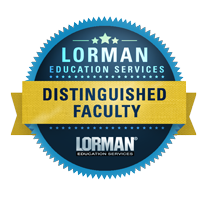I happen to be a fan of AMC’s reality television show, The Pitch. Not because it is creating national attention and buzz for our industry, but primarily because it shows the flaws of agencies pitching for new business.
In the first episode of season two, the winning agency, Breensmith, Atlanta, GA, lost the new account to the losing agency, Fletcher Rowley. Bizzare? Maybe to viewers, but not to most agencies who have pitched for business in the past because problems like this are the norm. This is because the pitch process is flawed.
Here are some of the reasons why the pitch-for-business process is bad and should be avoided:
- Agencies are giving away their intellectual property for nothing
- Too often the end result of a pitch doesn’t pair the client with their best creative partner
- RFP’s request spec work even though the agency lacks a total understanding of the clients’ challenges and objectives
- The pitch becomes a “cattle call” with too many participating agencies
- Pitches are often run by marketers who are not the ultimate decision makers
- The size of the account for the winning agency is often misrepresented
- Quite often agencies do not have access to decision makers prior to a pitch
- There can be multiple layers of consensus on the client side before an agency partner can be selected
- Agencies rarely know who they are pitching against
- Briefs are often poorly written
- Power over the selection process by pitch consultants and procurement
- A number of unsuccessful pitches can create a perception that the agency is a failure
- Disruption of work for existing clients
In my opinion, for small to midsize agencies, pitching is not a good strategy for new business.
A pitch is a considerable investment by an agency. Even for some midsize agencies the cost of a pitch can often exceed $100,000 in time, travel and other external costs. Not to mention the expenditure of energy and morale if the agency loses. It’s a huge gamble without very good odds.
How to Avoid “The Pitch”
The majority of agencies are undifferentiated.
“Contrary to common belief, all agencies have pretty much the same basic capabilities, and processes. They all claim to have proprietary tool. They may have different labels for what they do, but the approach is essentially the same at big or small agencies.” – Avi Dan, Forbes contributor who has 30 years of leadership experience with top global Madison Avenue agencies.
The world doesn’t need another generalist firm. What clients need and want is deep expertise. Expertise is the only valid basis for differentiating your agency from the competition. It’s not people, proprietary processes or price.
Here’s how agency owners can stop being a generalist firm and become a specialist agency:
- Determine Your Best Prospect. Most agencies are reluctant to identify their target audience. They are afraid that if they do, they will miss a new business opportunity. You can’t be everything to everybody. If you try to appeal to everyone, you appeal to no one.
- Develop a Content-Driven Platform for New Business. Experts write. Writing can quickly establish a positioning of expertise. If you’re serious about developing new business without having to pitch, “you can’t succeed without a platform.” I highly recommend Michael’s new book to every agency principal, “Platform: Get Noticed in a Noisy World”. It is a New York Times, Wall Street Journal, and USA Today bestseller. He provides exceptional detail on how to build a successful online presence using social media. You will save a lot of time, energy and frustration by reading Platform.
- Create a Positioning of Expertise. Prospective clients are looking for specialists. According to the findings from the AAAA-Millward Brown “Marketer New Business” survey, industry or category experience is the criteria most national advertisers use in selecting an agency. Expertise is the primary means for differentiating your agency from your competition. The Barkley agency demonstrates how to humanize your agency, build a positioning of expertise and make a personal connection with prospects. Check out my recent article, “The Barkley Agency Finds A Niche in Marketing to Millennials.”
- Build Your Community. The way we communicate as human beings is being disrupted & changed. You need to be where your customer ‘s attention is and create value. To build up your prospective client audience you need to lead with benefits rather than credentials and capabilities. Don’t propose on the first date! Relationships take time.
Additional articles that may be of interest:
- What “The Pitch” Left Out: Why Agencies Get Hurt By An Upside Down Approach To New Business, Avi Dan, Forbes contributor and fomer global agency business development director
- The Real Reason The Big Ad Agencies Avoided AMC’s ‘The Pitch’, Will Burns, Forbes contributor and agency pitch consultant
- SlideShare: Steve Jobs’ 10 Presentation Tactics
- The Desperation of AMC’s The Pitch Hits Close to Home for Real-Life Ad Men
- AMC’s The Pitch Returns to Further Embarrass Ad Biz






